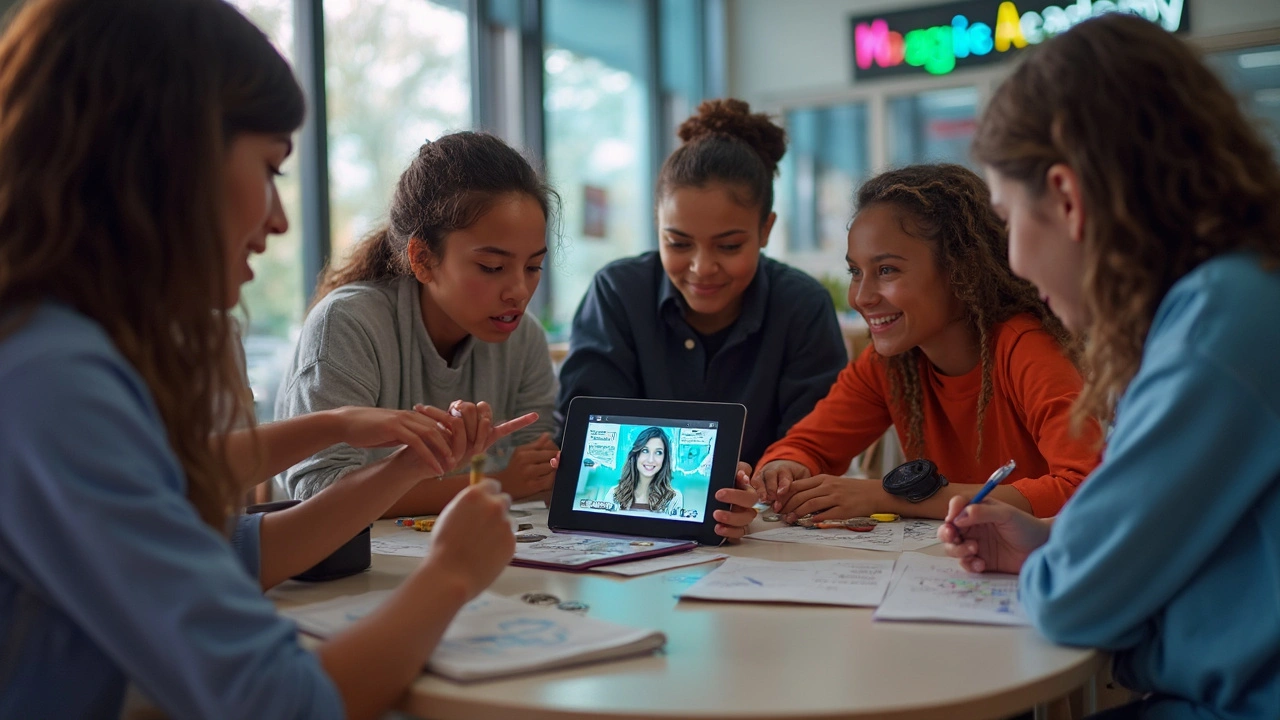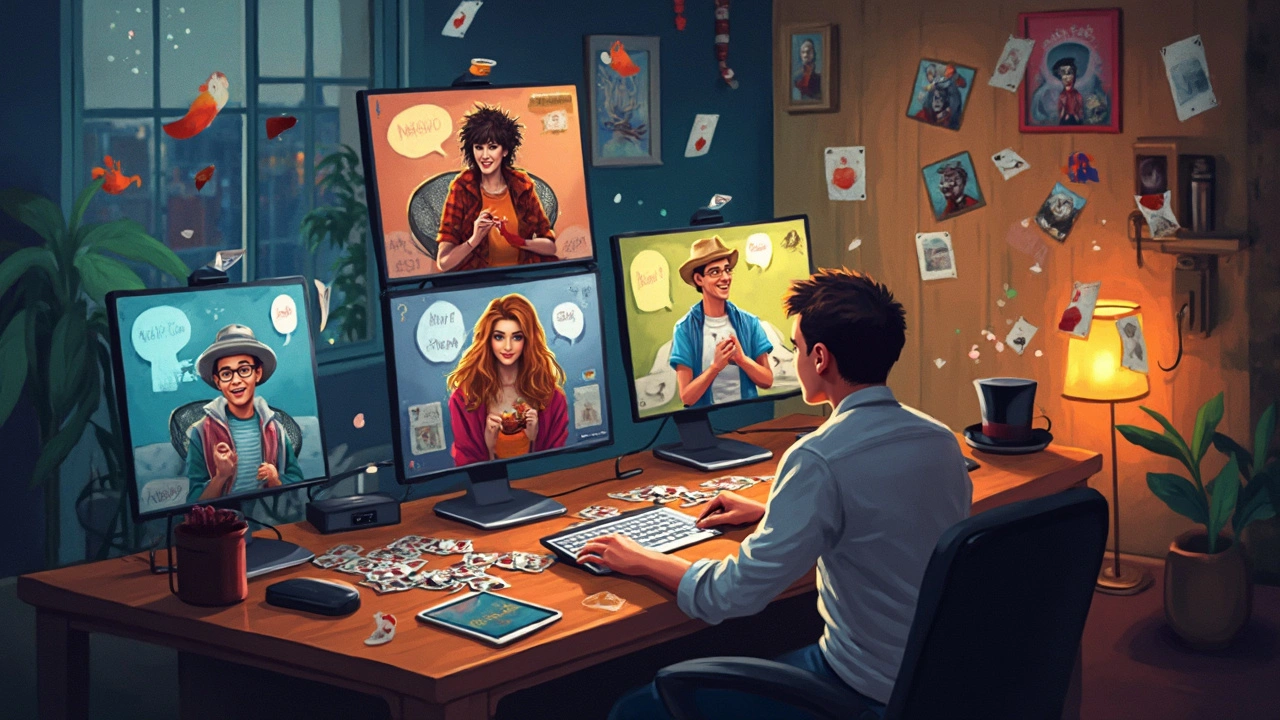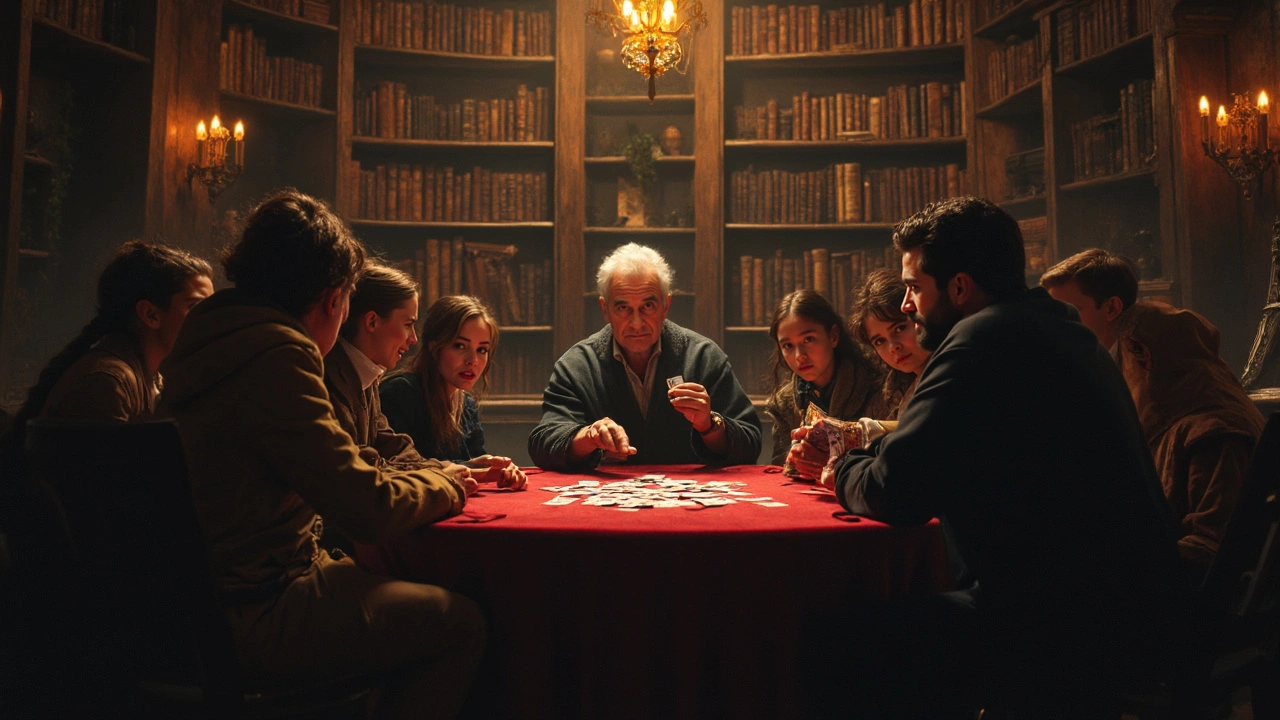You know that feeling when you’re completely fooled by a magician? That hint of frustration, mixed with awe and a little itch to figure out the trick? Here’s the wild part: almost every magician started with that exact same feeling. The real mystery isn't just how that coin vanished in thin air—it's where these performers actually learn to turn impossibility into reality.
The Ancient Roots and Secret Societies of Magic
Long before street magicians hit YouTube, magic had roots way deeper than most people think. Some of the earliest mentions of magic tricks go all the way back to ancient Egypt, with the conjurer Dedi, who supposedly decapitated a bird and revived it (Houdini would’ve loved to see that). Ancient China, Greece, and Rome had their own stage wizards, pulling coins from ears and surprising nobility for centuries. But magicians weren't just entertainers—they were often seen as mysterious, sometimes even feared, holding “powers” that crossed into mystical territory.
As time went on, magic became less about sorcery and more about skillful trickery. By the 17th century, secret societies began bubbling up across Europe, sharing tricks and sleights the way fighters trade moves. The famous Magic Circle—founded in London in 1905 and still running—admitted only magicians willing to pledge an oath of secrecy. In the U.S., the Society of American Magicians started up in the early 1900s with Harry Houdini as a member.
Even now, these societies aren’t just about swapping tricks. They’re support groups, career coaches, and gatekeepers for real magicians. You can’t just waltz in; you usually need to audition, be vouched for, or show serious chops. At their meetings, there’s a thrill: you might see a new method for slicing someone in half, or hear about an old diary revealing a card trick with roots in the 1800s. Think of it like the inside track for the world’s best-kept secrets.
Magic Schools, Books, and the Library Card Advantage
Forget Hogwarts. While there’s no sorting hat, there actually are magic schools. Some are famous—like the Chavez Studio of Magic, which has been teaching sleight of hand in Los Angeles since 1941. Others are less formal—small, scrappy clubs meeting in basements or online, passing down knowledge from one generation to the next.
Textbooks played a massive role in spreading magic. The 1584 classic “The Discoverie of Witchcraft” wasn’t meant for magicians (the author wanted to expose charlatans), but it ended up becoming the first English book with actual instructions for magic tricks. By the 19th and 20th centuries, you had books like Jean Hugard’s “Modern Magic” and Tarbell’s “Course in Magic,” which had hundreds of routines and sleights laid out step-by-step. You wouldn’t believe how many top magicians started by dog-earing pages of those books, practicing in front of bedroom mirrors.
Public libraries became safe havens for aspiring magicians. If you dig into library checkout records from the 1950s to ‘70s, magic books were checked out at a rate 40% higher than most nonfiction (see the table below). Libraries let kids and adults learn classic card manipulation, coin tricks, and mind reading without so much as a dollar spent on lessons. One hidden gem: the American Museum of Magic in Michigan, with more than 10,000 rare books and hand-written notebooks—some looked at only by professional magicians.
| Decade | Avg. Monthly Magic Book Checkouts | Compared to Nonfiction |
|---|---|---|
| 1950s | 520 | +42% |
| 1960s | 610 | +39% |
| 1970s | 700 | +44% |

YouTube, the Internet, and Magic in the Digital Age
Secret handshake? Pfft. The internet flipped the whole game. Now a kid in rural Idaho can learn a card flourish from a magician in Tokyo, all before dinner. YouTube, TikTok, Instagram, and online forums like The Magic Café brought magicians into the age of viral learning—sometimes to the irritation of old-school pros who like their secrets under lock and key.
Some magicians hustle on Patreon or run private Discord servers, sharing advanced routines with dedicated students. You’ve got paid masterclasses from David Blaine, Derren Brown, and Shin Lim, where they walk through mind-boggling routines step by step. But the internet’s a double-edged sword: with exposure comes the risk of “secret leakers”—folks who reveal how a trick is done just to chase views. And magicians like Penn & Teller have had to get more creative than ever to keep secrets safe.
Stats from 2023 show there are about 17,000 channels on YouTube uploading magic content regularly, with some tutorials racking up over 20 million views each. That’s a treasure chest for eager beginners, but it also means there’s more half-baked advice floating around than ever. The best advice? Always vet your sources: established magic channels, publications, or courses run by working magicians stay true to the real craft. Don’t just copy tricks—understand why they work.
Learning by Doing: The Magic of Practice and Mentorship
Watching a video is one thing—pulling off a flawless double lift in front of grandma is another. Magic isn't just about knowing secrets. It’s about practice until your hands move like muscle memory. Sleight of hand can take hours each day, sometimes with a deck of cards under the dinner table, sometimes sitting on a bus. Eric Mead, a pro magician, once said he practiced shuffles five hours a day for a year just to get one move smooth enough to fool his own teacher.
Nothing beats the old apprentice style of learning. Across generations, most magicians have a mentor—a seasoned pro who tears apart routines, offers brutally honest feedback, and gives that “Aha!” moment when you finally nail a trick. Dai Vernon, the jazz legend of magic, mentored everyone from Doug Henning to Ricky Jay. Today, mentorship might happen over Zoom calls or at conventions, but the principle’s the same: learn from someone who’s been fooled, failed, and come out sharper.
Live performance is where the nerves kick in. Every crowd is different—what works in a school gym won’t always fly in a nightclub. Magicians learn to read rooms, improvise when a trick starts wobbling, and even feed off hecklers. A show with 200 people can teach you more in one night than weeks of solo practice. And yes: most pros have botched a trick in front of a live audience and just had to own it.

Breaking In: How Modern Magicians Get Started (And Stand Out)
Here’s a not-so-secret truth: most successful magicians started ridiculously young. David Copperfield picked up his first magic book at age 7; Dynamo was practicing street magic as a teenager in Bradford, England. But there’s no age limit—some pros started in their 30s or later after seeing a street performer on vacation and getting completely hooked.
If you’re looking to start, the path is clearer now than ever. Join a local magic club—the International Brotherhood of Magicians alone has 300 clubs worldwide. Attend a convention, like Magic Live in Las Vegas, which hosts nearly 2,000 magicians every year (and is basically Comic Con for tricksters). Buy a simple trick from a reputable magic shop—shop owners are often working magicians themselves, more than willing to steer beginners away from overpriced junk or “exposure” gimmicks. For digital learning, download courses from real pros or subscribe to vetted YouTube channels (look for a solid subscriber base, high engagement, and positive reviews).
Here’s a pro tip: learn magic, not just tricks. Don’t collect tutorials like trading cards; get curious about stagecraft, misdirection, psychology, and timing. Magicians who stand out aren’t just copying—they’re adding their own story, humor, or style. That’s how you become the magician nobody can quite figure out, even in this era of instant information.
The real “secret” of magic isn’t some formula locked in a vault by the Magic Circle. It’s the guts to keep practicing, learning, and performing. Most magicians will tell you: you’ve got to love the journey. The tricks are cool, but the real magic is in the thrill, the hype, and that look on someone’s face when you do the impossible right in front of them. It’s addictive, and it’s why magicians still guard their secrets—and keep searching for the next, best trick.


Donald Sullivan
July 17, 2025 AT 22:10I have to say, this article takes a solid swing at demystifying what’s often cloaked in secrecy. Magicians rarely spill the beans fully, but things like secret societies and magic schools as starting points? Makes total sense.
Still, I’m a bit skeptical about how much the internet has changed the game. Sure, online platforms are great, but magic relies heavily on face-to-face mentorship and practice, no? Do these virtual classes actually make anyone a real pro, or just amateurs with flashy moves that lack soul?
And those "unusual hurdles"—would love to see more on that. Is it physical skill, mental endurance, or some kind of psychological toll? This article barely scratches the surface.
Either way, it’s a cool read, but I’d argue the real mastery comes with years of grit and failure, not just following schools or online videos. What’s your take?
Jessica McGirt
July 20, 2025 AT 10:26There’s definitely a magical allure in how these masters seem to have innate talent, but it’s refreshing to see the mention of hands-on experience and tradition here.
I do wonder though, about the inclusivity in these magic schools and societies. Are they open to anyone with passion, or are there barriers—financial, cultural, or gender-related—that limit who can learn?
Considering how many secrets get passed down, this might be a field where communities keep knowledge under lock and key, possibly stifling diversity and fresh ideas. Would love an article diving deeper into that.
Overall, the journey from beginner to pro seems less mystical and more like a disciplined craft from what I gather here, yes?
Adithya M
July 21, 2025 AT 14:13Exactly! It is about discipline and commitment, and no matter what, the actual craftmanship is developed by practice, not just secrets in some society.
People should stop glorifying the “secret” part so much, it sounds like an excuse for not working hard enough.
This article does well clarifying that magic is a skill learned, and willingness to fail matters more than some hidden knowledge.
We need more articles like this to break down the mystery and respect the effort it takes to be proficient.
Magic isn’t about luck or secrets, it’s about dedication and practice. No wizardry without sweat.
Ronak Khandelwal
July 22, 2025 AT 18:00✨I absolutely adore how this article brings light to the passion and energy behind learning magic! True mastery is a blend of tradition, discipline, and heart.
Also, isn’t it beautiful that magic schools and secret societies foster a sense of community and shared curiosity?
For many, magic is not just tricks but a profound way to connect with others and challenge perception. That journey from novice to pro is both an external and internal voyage.
I'm intrigued by the quirky facts mentioned. A little mystery combined with history always adds flavor to the art.
🌟 Anyone else feel inspired to pick up a deck of cards and try their own sleight of hand after reading this?
Jeff Napier
July 23, 2025 AT 21:46Let me throw in my two cents here: the whole idea of secret societies and “magic schools” sounds like a smokescreen for keeping the truth away from the masses.
Trust me, the real magic isn’t learned in schools but uncovered in the shadows where nobody’s watching. The "online platforms"? Probably government or corporate ploys to track curious minds who want to unlock those hidden powers.
Before you know it, that magic you learned online turns into a control device to manipulate perception and reality itself.
Wake up, people! Don’t be fooled by surface stories that make magic nice and digestible for the public.
That said, I do sorta appreciate the article attempting to reveal some parts...
Tina van Schelt
July 25, 2025 AT 01:33Omg, the blend of tradition with online learning is quite dazzling, don’t you think? This article skirts the edges of that fascinating collision between old-world mystery and sleek modern tech.
Magic schools must have so many untold stories — velvet ropes, whispered secrets, and dimly lit libraries filled with dusty spellbooks and illusions!
But on the flip side, isn't it wonderful that now anyone anywhere can start learning magic through digital tools? It’s the great democratization of wonder.
I would’ve loved to see a sprinkle more about the kinds of tricks deemed acceptable to share versus those fiercely protected.
Will these traditions survive the digital age or be reshaped completely? Something to ponder! 🤹♂️✨
Daniel Kennedy
August 1, 2025 AT 00:13I appreciate the complexity behind mastering magic highlighted here. There’s a whole ecosystem behind the scenes—schools, communities, the push and pull of tradition and innovation.
From a mentorship perspective, nothing beats hands-on, personalized guidance, but online resources act as valuable supplements especially in today’s world.
The unusual hurdles mentioned: definitely not just technical. Confidence, timing, psychological insight into an audience’s expectations—these are skills honed over years.
I do wonder whether the article touched enough on how diversity shapes magic styles internationally.
Overall, a solid primer that respects the craft and the magicians’ journey.
Sibusiso Ernest Masilela
August 5, 2025 AT 15:20Honestly, articles like this seem to glamorize something that’s become rather pedestrian. Secret societies? Please, most of that is nonsense dressed up to trick the gullible. Real magic is about performance and charisma — not some pseudo-mystical clubs.
Truth is, the bulk of learning comes from copying and tweaking existing tricks, then layering your own personality on top.
The world of magic is dripping in theatricality and ego. I’m tired of the hypocrisy wrapped as tradition.
There’s far too much drama about 'secrets' which really boils down to smoke and mirrors in more ways than one.
Get real. Magic is a craft, not a myth.
Taylor Hayes
August 10, 2025 AT 06:26It’s great to see this kind of conversation because magic is an art that requires patience and empathy as much as technique.
Some articles gloss over the emotional labor involved, but mastering illusions means understanding how people perceive reality, their hopes and doubts.
As an open-minded enthusiast, I feel this article opens up room for appreciation beyond just the tricks — the tradition, culture, and personal growth.
There’s a beautiful humility in realizing no trick is truly perfect, just as no performer is flawless.
Would love to see more content that highlights this human side of magic.
Sanjay Mittal
August 14, 2025 AT 21:33This article does a good job pointing out the multiple facets involved in learning magic—especially the value of practice and real-world experience.
The emphasis on different paths, from secret societies to online platforms, illustrates how the craft is evolving but still rooted in solid fundamentals.
It’s crucial to understand that while secrets make for good stories, consistent effort and learning from failures define the true mastery.
I really appreciate that it touched upon the mental and physical challenges faced by magicians—it’s not just about flashy moves, but precision under pressure.
Looking forward to more deep dives into specific schools or traditions around the world for a richer perspective.